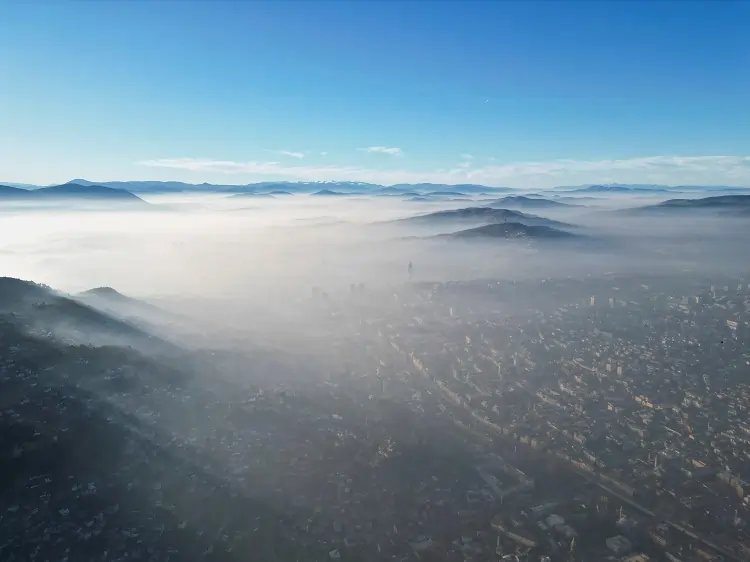Fog and smog push Sarajevo towards top of world pollution charts


By Amel Emric and Daria Sito-Sucic
SARAJEVO (Reuters) – A blanket of fog and smog descended on the Bosnian capital of Sarajevo this week, reducing daytime visibility to a few dozen metres and forcing residents indoors as pollution levels surged to hazardous levels.
Only India’s capital New Delhi, which has 100 times more people than Sarajevo, clocked worse air quality on Wednesday, according to IQAir, which tracks pollution levels in cities across the world.
IQAir has consistently graded Sarajevo’s air quality as “very unhealthy” or “hazardous” this week, two of its worst measures. Street lights have been blotted out by the smog and road traffic has reduced significantly.
Its chart ranked Sarajevo as Europe’s most polluted city, with Skopje in North Macedonia the next worst at number 10.
Sarajevo, with a population of about 315,000, has almost no polluting industries, as they were destroyed during Bosnia’s war in the 1990s.
But the city, nestled in a valley surrounded by mountains and hills, has long suffered from a phenomenon known as temperature inversion which presses colder air and pollutants from vehicles and fossil fuels closer to the ground.
Mixed with fog, it can stick around for days, meaning the city often suffers with pollution in the winter.
“I am hardly coping with this weather, it’s very difficult to breath,” said Sanjin Hakalovic, who was walking the streets wearing a mask.
“I am worried for my child who is engaged in sport because it’s very difficult to train in such conditions. I am also worried for my parents.”
Experts say that burning poor quality coal and wood in winter, and the use of old diesel vehicles, are the main contributors to air pollution. The rapid construction of high-rise buildings that block wind corridors have not helped.
When pollution was bad last winter, the government pledged to ban older cars and suspend school classes and outdoor gatherings when air quality deteriorated. None of these measures have been implemented.
Sarajevo’s cantonal government did not respond to a request for comment. It has previously said that it is investing in public transport and energy efficiency.
“(It) can be resolved only by the elimination of the use of fossil fuels and reduction of traffic which is choking the streets,” said air expert and the retired dean of the Sarajevo University Faculty of Science and Mathematics Muris Spahic.
(Additional reporting and writing by Daria Sito-Sucic; Editing by Edward McAllister and Alison Williams)
Air pollution refers to the presence of harmful substances in the air we breathe, which can come from various sources like vehicles, industrial emissions, and burning fossil fuels.
Temperature inversion is a meteorological phenomenon where a layer of warm air traps cooler air at the surface, preventing pollutants from dispersing and leading to increased air pollution.
Explore more articles in the Top Stories category











